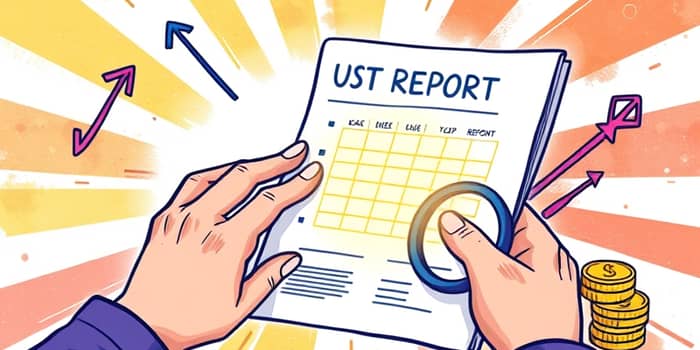Your credit report is more than just a document—it’s a powerful tool that influences some of life’s biggest decisions. From securing a mortgage to renting an apartment, your credit history shapes opportunities and determines the terms of your financial relationships. This article will guide you through everything you need to know about credit reports, why they matter, and how to make them work for you.
Definition of a Credit Report
A credit report is a detailed summary of your credit history, compiled by specialized agencies known as credit bureaus. It tracks how you’ve managed credit over time, recording loans, credit cards, payments, and public records. Every action you take—on-time payments, late fees, or defaults—becomes part of this comprehensive record.
By combining data from multiple creditors, a credit report paints a complete portrait of your credit habits. Lenders, insurers, and even landlords rely on this portrait to assess your reliability and risk as a borrower or tenant.
Who Uses a Credit Report?
Understanding who views your credit report helps you appreciate its importance. Various entities consult your report to make informed decisions:
- Lenders evaluate your ability to repay loans before approving mortgages, auto loans, or credit cards.
- Insurance companies may adjust premiums based on your credit profile.
- Landlords and property managers screen rental applicants for financial responsibility.
- Employers sometimes review credit history (with consent) for positions handling money.
- Utility and service providers decide on deposits and terms for new accounts.
The Three Major Credit Bureaus
In the United States, three companies dominate credit reporting: Equifax, TransUnion, and Experian. While each bureau follows similar reporting standards, the information they receive can vary because not every creditor reports to all three. Discrepancies between reports are common but can be reconciled by carefully comparing each version.
Regularly checking all three bureaus ensures you catch errors or omissions and maintain a uniformly strong credit profile.
What Information Is Included in a Credit Report?
A credit report is divided into several key sections, each shedding light on different aspects of your financial behavior:
- Personal Information: Your name, aliases, addresses, Social Security number, and employment history.
- Credit Accounts: Details on revolving and installment accounts, including balances, limits, and payment history.
- Public Records: Bankruptcies, tax liens, foreclosures, and civil judgments that can impact your creditworthiness.
- Collections: Accounts sent to collection agencies for unpaid debts.
- Credit Inquiries: Records of companies that have accessed your report, distinguishing between hard and soft inquiries.
- Other Information: Fraud alerts, identity theft alerts, and optional consumer statements.
Below is a summary of each major section:
Why Credit Reports Matter
Your credit report is a decision-making tool for lenders and landlords, influencing interest rates, deposit requirements, and approval chances. A strong credit report can save you thousands of dollars over a lifetime through lower interest rates and better loan terms.
Beyond borrowing, your credit report is a reflection of your financial discipline. It offers tangible proof of your ability to handle debt responsibly, which can open doors to premium credit cards, favorable rental agreements, and competitive insurance rates.
Accessing and Monitoring Your Credit Report
Federal law entitles you to one free credit report every 12 months from each bureau. Here’s how to stay on top of your credit:
- Visit the official AnnualCreditReport.com portal to request all three reports in one place.
- Check each report for errors and dispute inaccuracies promptly.
- Consider staggering your requests every four months to monitor your credit year-round.
In addition to your annual free reports, some credit cards and financial services offer complimentary credit monitoring and alerts. Regularly review your credit report to spot evidence of identity theft or unauthorized accounts before they cause lasting damage.
Credit Score vs. Credit Report
While your credit report contains the raw data, your credit score is a numerical representation of that data. Scores are calculated using proprietary models, with factors such as payment history, credit utilization, account age, and inquiry count. Understanding this distinction empowers you to focus on actions that improve both your report and your score.
Common Misconceptions and Practical Tips
A few myths can cloud your understanding of credit reports. Addressing these misconceptions will help you take control of your financial narrative:
- Myth: Checking your own report hurts your score. In reality, soft inquiries do not affect your credit score.
- Myth: Closing old accounts always improves your credit. Closing well-managed accounts can shorten your credit history and harm your score.
- Myth: All lenders report to every bureau. Many do not, so regularly check all three reports.
To build and maintain a healthy credit report, remember to:
Pay every bill on time—even a single missed payment can leave a lasting mark.
Keep credit utilization low—aim for under 30% of your available credit.
Address inaccuracies quickly by filing disputes and providing supporting documentation.
Protect your personal information to guard against identity theft and fraudulent accounts.
Understanding and managing your credit report is a proactive step toward protecting your financial well-being and unlocking better opportunities. By regularly reviewing your report, challenging errors, and adopting responsible credit habits, you empower yourself to achieve long-term financial goals with confidence.
References
- https://www.investopedia.com/terms/c/creditreport.asp
- https://www.fdic.gov/consumer-resource-center/credit-reports
- https://www.equifax.com/personal/education/credit/report/articles/-/learn/what-is-a-credit-report-and-what-is-on-it/
- https://www.myfico.com/credit-education/whats-in-my-credit-report
- https://www.capitalone.com/learn-grow/money-management/what-is-a-credit-report/
- https://www.dummies.com/article/business-careers-money/personal-finance/loans-credit/credit-reports/understanding-the-different-sections-of-your-credit-report-153995/
- https://www.consumerfinance.gov/ask-cfpb/what-is-a-credit-report-en-309/
- https://www.canada.ca/en/financial-consumer-agency/services/credit-reports-score/credit-report-score-basics.html










